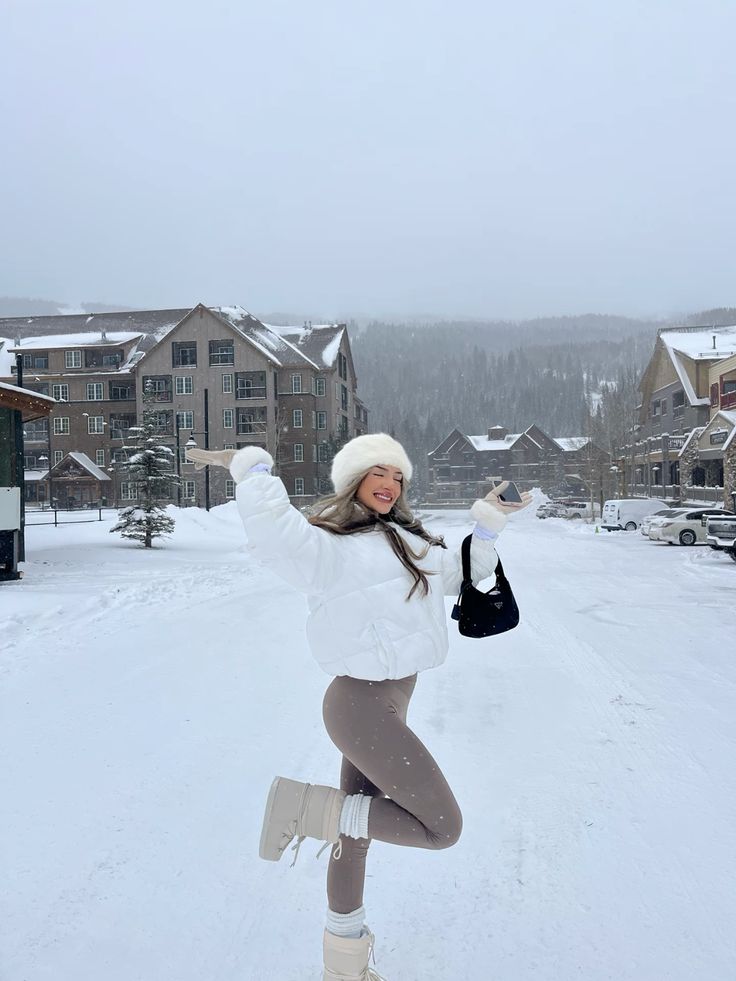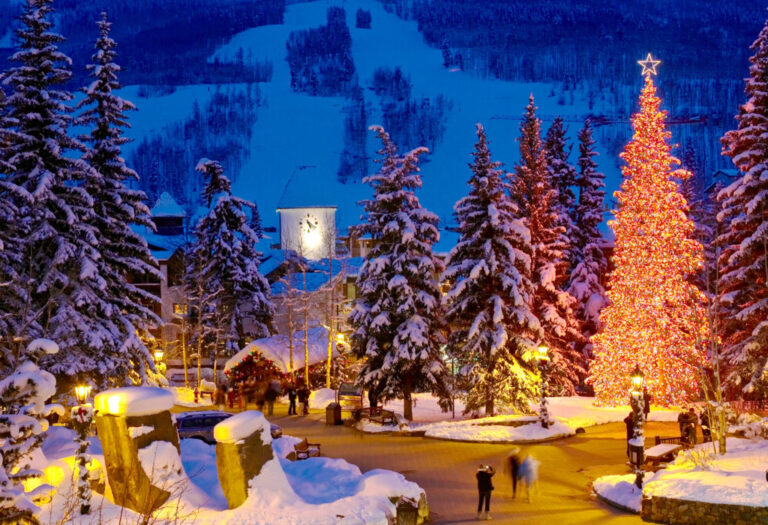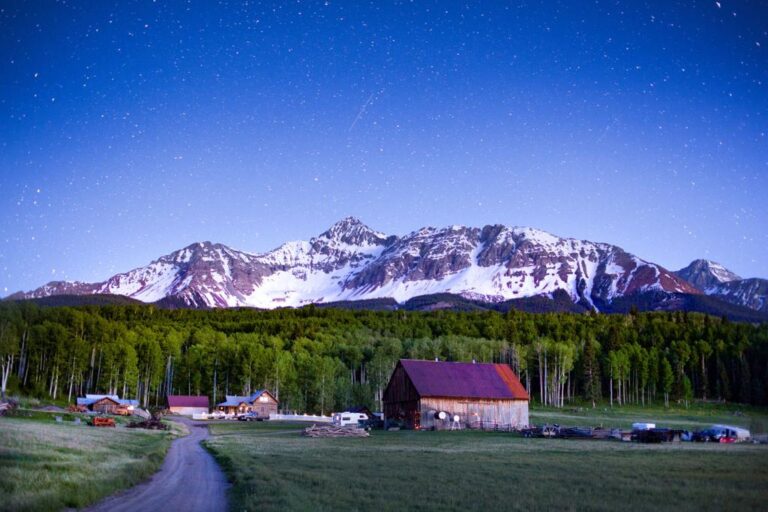For nearly a century, travelers have admired the Peak to Peak Highway’s forested slopes, snow-dusted mountains and sweeping vistas. In 1918, the state named the route its first scenic byway. When the Colorado Scenic and Historic Byways program was created in 1989, the highway was selected as one of the five initial designated routes.
 The Peak to Peak Scenic and Historic Byway parallels the Continental Divide between Black Hawk in Gregory Gulch and Estes Park, gateway to Rocky Mountain National Park. Throughout the journey, it captures awe-inspiring views of rugged mountaintops scraping the sky. Those who travel the byway can also enjoy hiking, fishing, snow sports, wildlife viewing and historic settlements.
The Peak to Peak Scenic and Historic Byway parallels the Continental Divide between Black Hawk in Gregory Gulch and Estes Park, gateway to Rocky Mountain National Park. Throughout the journey, it captures awe-inspiring views of rugged mountaintops scraping the sky. Those who travel the byway can also enjoy hiking, fishing, snow sports, wildlife viewing and historic settlements.
The route starts at an elevation above 8,000 feet in the historic mining district occupied by Black Hawk and Central City, once known as “the richest square mile on earth.” Today, limited-stakes gambling casinos and the Central City Opera House lure visitors to the quaint towns. Each summer, a blast of miner’s dynamite and ringing of the theater’s bell herald the beginning of the opera season.
All along the way, the byway traverses state and national public lands, each offering recreational activities in pristine settings. First comes Arapaho National Forest, then the entrance to Golden Gate Canyon State Park.

The majestic range in the Indian Peaks Wilderness Area fills the horizon as the road winds upward. The Wilderness Act of 1964 protects this and other selected federal lands from human settlement and mechanization. Lush ponderosa pine forests cover the slopes. In autumn, stands of aspen streak the mountainsides with broad swaths of gold. In winter, snow-capped South Arapaho, North Arapaho, Kiowa and Navajo peaks shimmer under the sun like diamonds.
The route enters Rollinsville, which once served as a major railroad hub. Before the Moffat Tunnel was bored, westbound trains chugged over treacherous Rollins Pass. To complete the 23-mile trip, locomotive firemen had to shovel 15 tons of coal into the engine. Today, on winter weekends, the Ski Train whistles through Rollinsville, transporting snow riders to Winter Park Resort.
After entering Roosevelt National Forest, the byway reaches its halfway point at Nederland. The mountain town has evolved from a mining center to an alpine suburb of Boulder. It got its name when Dutch investors bought nearby silver mines.

Ore booms in the late 1800s brought so many people to the town that hoteliers rented beds in eight-hour shifts, and restaurants allowed diners only 20 minutes to eat a meal. Today, travelers stop here to explore its arts and crafts galleries, rock shop, museum and riverside trail. A number of eateries, including a Nepalese restaurant, offer a variety of lunch options. In the winter, skiers glide down the slopes of nearby Eldora Mountain Resort.
The road continues winding upward to Ward, where the elevation exceeds 9,000 feet. Mounds of talus ring the former mining camp. In the 1890s, Switzerland Trail of America Railroad operated a daily excursion train to Ward. Passengers thrilled in scaling the mountain to scenic vistas and fresh alpine air. Today, a well-preserved schoolhouse and church remind visitors of the quiet community’s golden days.
The highway then descends into Peaceful Valley, a former noontime stop on the Ward-Estes stage run, and enters Middle St. Vrain canyon. When it turns onto Colorado 7, Mount Meeker towers on the horizon. The peak was named after Nathan Meeker, founder of the Union Colony at Greeley. Built atop a huge granite rock, St. Malo Chapel graces the roadside.
As the byway winds down into Tahosa Valley, it passes a historic marker honoring Enos Mills. The naturalist’s tireless campaign led to creation of Rocky Mountain National Park in 1915. The single-room log cabin in which he wrote many of his stories about wildlife and nature stands back from the road. The Enos Mills Cabin Museum & Gallery sells his photographs and books, including previously unpublished works.

Across the highway is Longs Peak Inn, which Mills owned and operated in the early 1900s. He interpreted nature for his guests and led hundreds of climbs up 14,255-foot Longs Peak.
Farther down the road, the Twin Sisters rise to the east. Six miles before the byway reaches its northern point, Lily Lake Visitor Center orients travelers to Rocky Mountain National Park. Exhibits give recommendations for various activities, including birdwatching, wildflower viewing and photography. From this angle, Longs Peak is distinguished by its beaver shape. Across from the center, a groomed gravel path circles Lily Lake. Anglers enjoy catch-and-release fly fishing.
Estes Park, the eastern gateway to Colorado’s first national park, lies nestled below in a broad mountain valley. The descent curves through cut rock into the resort town. Elk often graze in roadside meadows. In the distance, Mummy Range pinpoints the location of the national park, promising additional wonders for those who continue exploring.
If your stomach tells you it is hungry during your trip, there are several places where you can stop to eat. The same is true if your body is letting you know it is tired, several lodging facilities are located in the area. The Sundance Lodge and Cafe is in Nederland. Here you can choose a hearty breakfast or, late in the day, enjoy their delicious cheeseburger and fries. The menu offers something for every appetite. If you enjoy the outdoors, you can have your meal on the patio. For people interested in spending more time in the area, they also offer lodging at affordable prices. Guests rave at the fantastic views, along with the great rooms.
Another dining experience is available at Marrocco’s Family Dining located in Ward. Aside from fantastic service and delicious meals, you will enjoy the historic building and the friendly staff. Patrons love their authentic Italian meals – particularly their pizza, made from scratch, their shrimp scampi, and various other dishes. They also offer wholesome breakfasts to prepare you for the day.
Lodging is available at The Boulder Creek Lodge located in Nederland. You will be treated with a gratuitous breakfast. You can also enjoy their complimentary high-speed Wi-Fi. The facility also allows pets as guests. It is a non-smoking hotel. The log cabin hotel is near all of the local shops and restaurants that are all within walking distance. Visitors enjoy the two decks as well as the hot tub to relax after an exhilarating day.
The Path and the Destination:
The Peak to Peak Scenic Byway can be found in the middle of the northern part of Colorado.
It traverses the core of the Rocky Mountains for a distance of approximately 55 miles, beginning in Central City in the south and ending in Estes Park in the north.
The Natural Charm That Is:
This route is well-known for the breathtaking scenery it offers, as it passes through thick forests, towering mountains, and peaceful alpine meadows.
The trail provides breathtaking views of the Continental Divide, and along the way, you’ll get the opportunity to see well-known mountains including Longs Peak and Mount Meeker.
Activities in the Great Outdoors:
Hiking, rock climbing, fishing, and watching wildlife are just some of the outdoor activities that may be enjoyed because to the byway’s convenient location.
The Rocky Mountain National Park, which can be reached by the byway, is home to some of the best hiking and animal viewing possibilities in the country.
Viewpoints of the Scenery:
At various points along the road, such as the Indian Peaks Wilderness and the Roosevelt National Forest, you’ll come across pull-off spots and magnificent overlooks where you can pull over to soak in the majesty of the surrounding landscapes.
Landmarks of the Past:
The byway is not only stunning in terms of its natural surroundings, but it also features historical sites that are interesting to visit. You can learn about the history of gold mining at communities like Central City and Black Hawk, which are located close to the southern terminus of the byway. at these cities, you can visit historical structures as well as casinos.
Caribou Ranch is an important part of the history of the surrounding town of Nederland, which also has its own rich past.
Considerations Related to the Season:
The Peak to Peak Scenic Byway is normally accessible from the beginning of spring to the end of September, when the weather becomes cooler again.
The winter season often brings with it significant amounts of snowfall, which can make travel and accessibility difficult. If you intend to visit during the winter, you should make sure to check the state of the roads.
Happenings in the Art World:
Cultural events, art displays, and festivals that highlight the ingenuity and history of the local community can be found periodically taking place in the towns that are located along the byway.
The Peak to Peak Scenic Byway is a journey through Colorado’s majestic Rocky Mountains, offering travelers a combination of natural beauty, opportunities for outdoor adventure, and a look into the state’s mining history. In short, the byway is a journey through the wonderful Rocky Mountains. This byway has something to offer any type of traveler, whether you’re interested in taking in the sights on a scenic drive, engaging in some outdoor activities, or learning about local history.



